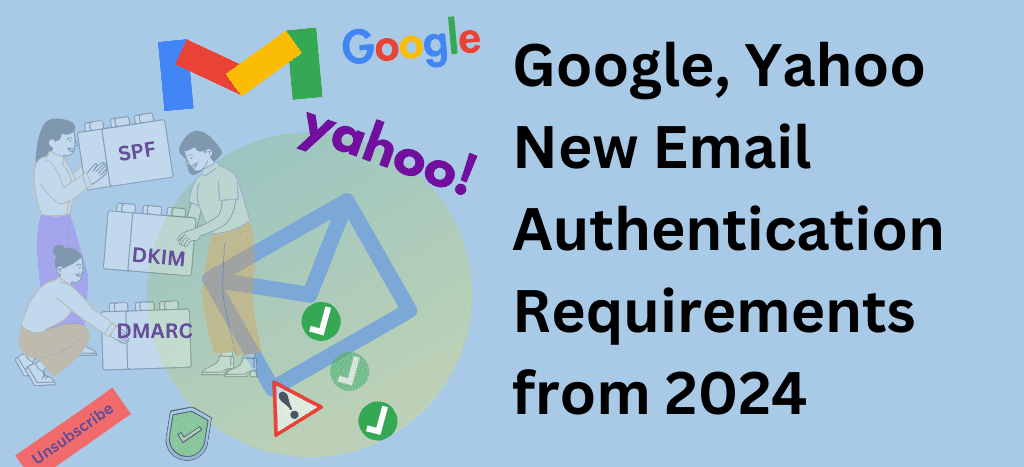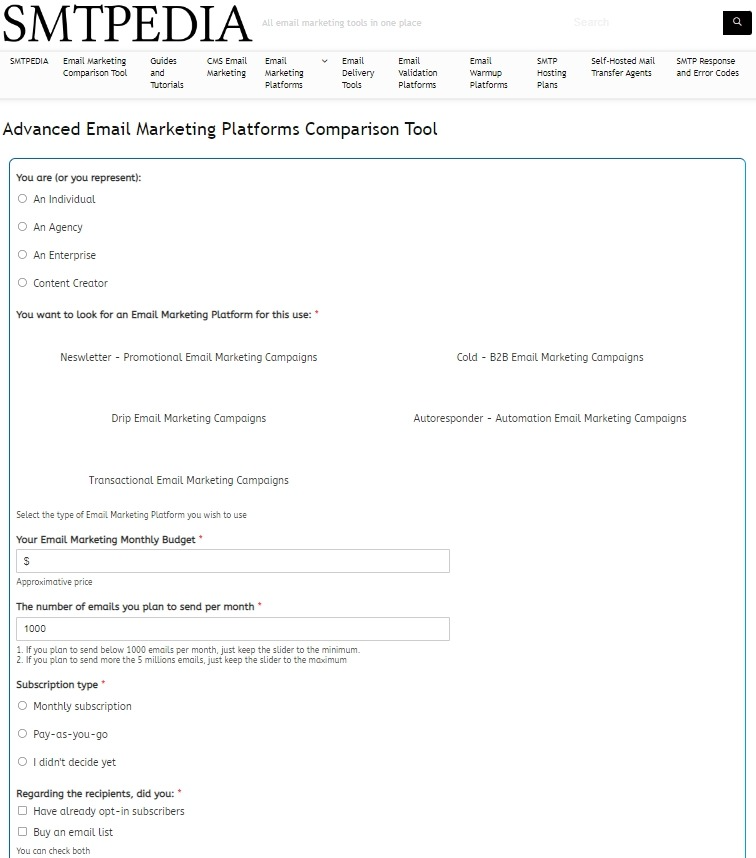
The recent announcement of email policy changes by industry giants Google and Yahoo has caused concern among businesses.
These changes are aimed at creating a more secure and efficient email environment, but at the same time, consequences may be harmful for businesses too.
In order to adapt to these new policies, organizations must prioritize best practices and implement effective outreach strategies.
This article will explore the importance of complying with these changes, the actions needed to maintain legitimacy as a sender, and the collaboration required between departments to successfully navigate this transition.
Importance of Email Acceptance Policy Changes
The importance of email acceptance policy changes is underscored by the recent announcements made by Google and Yahoo. These changes have created apprehension in the industry, but they aim to create a healthier environment for businesses and customers.
To be viewed as a legitimate sender, it is crucial to strongly authenticate emails using SPF, DKIM, and DMARC.
Additionally, offering a one-click unsubscribe option for Gmail and Yahoo recipients, processing unsubscription requests within two days, and enforcing a clear spam rate threshold are essential steps to prevent excessive unwanted messages.
Collaboration with IT and Operations teams is necessary to review policies, adjust email processes, and make necessary changes with the help of IT or Engineering departments.
Impact on Businesses
The changes in email rules have had a significant impact on businesses, prompting them to reconsider their strategies and adapt to the new landscape.
For businesses relying on mass email to acquire new customers, this update is particularly significant. It indicates that major email providers are cracking down on email spammers and aiming to reduce email automation.
While blasting out the same message to thousands of people may still be possible, it will become more difficult.
As a result, businesses will need to focus on a more personalized email strategy. The update will make it harder for businesses to rely solely on email automation for customer acquisition.
Therefore, companies must rethink their email strategies and consider personalizing their emails to improve their effectiveness.
Need for Personalized Email Strategy within Google and Yahoo
To effectively navigate the changes in email rules, businesses must adopt a personalized email strategy that prioritizes individualized communication with customers.
With major email providers cracking down on email spammers and aiming to reduce email automation, blasting out the same message to thousands of people will become more difficult.
The need for a more personalized approach is highlighted in order to improve the effectiveness of emails. By personalizing emails, businesses can establish a stronger connection with their customers and increase the chances of engagement.
This may involve tailoring the content, addressing the recipient by name, and incorporating relevant information based on their preferences or past interactions.
A personalized email strategy will enable businesses to stand out in a crowded inbox and build stronger relationships with their target audience.
Actions for Legitimate Sender Status
To achieve legitimate sender status, businesses must implement key actions to ensure email compliance and deliverability. Strongly authenticating emails using SPF, DKIM, and DMARC is crucial.
Additionally, offering a one-click unsubscribe option for Gmail and Yahoo recipients and promptly processing unsubscription requests within two days are important steps.
Enforcing a clear spam rate threshold to prevent excessive unwanted messages is also necessary.
Collaboration With IT and Operations Teams
Businesses can ensure successful implementation of email policy changes by collaborating closely with their IT and Operations teams. The changes announced by Google and Yahoo have created apprehension in the industry, making collaboration with these teams crucial.
GTM teams should review their policies and work with IT and Operations teams to adjust email processes and meet the new requirements. It is important to verify or make necessary changes with the help of IT or Engineering departments to ensure compliance.
Benefits of Compliance With Policy Changes
Compliance with the policy changes by Google and Yahoo offers businesses the opportunity to enhance email deliverability and maintain a positive sender reputation.
By adhering to these changes, businesses can ensure that their emails reach the intended recipients and are not marked as spam.
This increased deliverability can lead to improved communication with customers and prospects, ultimately driving better business outcomes.
Additionally, maintaining a positive sender reputation is crucial for building trust and credibility in the online community. It helps businesses establish themselves as legitimate senders, which can result in higher open rates and engagement with their email campaigns.
Key Factors for Successful Email Delivery
Maintaining a positive sender reputation and adhering to email acceptance policy changes are crucial factors for successful email delivery.
With the recent policy changes announced by Google and Yahoo, it is important for businesses to understand and implement the necessary measures to ensure their emails reach their intended recipients.
Email Authentication
Strongly authenticating emails using SPF, DKIM, and DMARC, offering a one-click unsubscribe option, and processing unsubscription requests promptly are actions that can help establish legitimacy as a sender.
Collaborating with IT and Operations teams to review and adjust email processes, as well as verifying or making necessary changes, will also contribute to successful email delivery.
Recommended Steps for Implementation
To successfully adapt to the email policy changes by Google and Yahoo, businesses should take the following recommended steps for implementation.
Firstly, it is crucial to strongly authenticate emails using SPF, DKIM, and DMARC to establish credibility and legitimacy.
Additionally, offering a one-click unsubscribe option for Gmail and Yahoo recipients and promptly processing unsubscription requests within two days will help maintain a positive sender reputation.
Furthermore, enforcing a clear spam rate threshold to prevent excessive unwanted messages is essential.
Collaboration with IT and Operations teams is necessary to review existing policies, adjust email processes, and verify or make necessary changes with the help of IT or Engineering departments.
When utilizing Google as an email send platform (ESP), organizations can ensure compliance with the recent bulk sending updates by authenticating their emails with Google.
Starting in 2024, Google will require bulk senders to authenticate their emails, allow for easy unsubscription, and stay under a reported spam threshold. Yahoo is considering following the same way too.
Moreover, both ESPs will consider blocking every email with a spam complaint rate over 0,3%.
By following Google’s rules and authenticating their emails, organizations using Google as their ESP can reduce the risk of their emails being marked as spam.
Compliance with Google’s requirements will essential for these organizations to maintain a good sending reputation and ensure their emails are recognized as legitimate.
Integrating Social Selling in Strategies
Sales organizations can significantly improve their email marketing strategies by integrating social selling into their approach.
Social selling, a hybrid of marketing and selling, focuses on building long-term partnerships with clients by enhancing lead generation efforts, building trust and credibility with prospects, and increasing conversion rates.
By leveraging social media platforms, sales teams can take a more personalized and customer-centric approach, building relationships, trust, and rapport with prospects. This requires a shift in mindset and ongoing relationship building, as well as alignment between sales and marketing teams.
Integrating social selling into sales strategies allows organizations to tap into the power of social media to reach a wider audience, engage with prospects on a more personal level, and ultimately drive more successful sales outcomes.
Personalized and Customer-Centric Approach
A customer-centric approach to email sales strategies is imperative in light of Google and Yahoo’s game-changing policies. With the implementation of new rules for email senders, such as email authentication and spam rate thresholds, it is crucial for sales organizations to prioritize personalized and customer-centric emails.
The days of high-volume, poorly targeted emails are coming to an end, as these policies aim to improve the quality and effectiveness of email communications. By focusing on developing prospects and leading with value, sales organizations can expect higher response rates and increased success in their email campaigns.
Additionally, integrating social selling into sales strategies can further enhance the personalized and customer-centric approach, building long-term partnerships and increasing conversion rates.
It is essential for sales teams to adapt and align their strategies to meet the changing landscape of email marketing.
Timeline for Policy Changes Rollout
The rollout of the email policy changes by Google and Yahoo will occur in February, affecting businesses and customers across the industry. This timeline gives organizations time to prepare and make the necessary adjustments to their email processes.
It is crucial for businesses to review their policies and collaborate with their IT and Operations teams to ensure compliance with the new requirements.
Recommendations for Businesses
Businesses should prioritize adaptation to the changing email landscape by implementing a personalized email strategy.
With major email providers cracking down on email spammers and reducing email automation, blasting out the same message to thousands of people will become more difficult.
Therefore, businesses need to rethink their email strategy and focus on personalizing their emails to improve effectiveness.
Additionally, companies that rely on one domain to send thousands of emails daily should consider using multiple domains to send emails from and limit the number of emails sent per day per domain to less than 60.
The importance of email warm-up tools
It is also recommended to utilize email warm-up tools to improve deliverability and authenticate emails with Google if using it as the email send platform.
One of these, and probably the most affordable, is SMTPing, a startup working on enhancing all the deliverability aspects, from warm-up, passing by inbox placement and email list validation
Support and Assistance for Businesses
How can businesses receive support and assistance during the email policy changes initiated by Google and Yahoo?
Outreach, a Sales Execution Platform, offers support to customers concerned about the changes. They have a plan in place to ensure service continuity and success with the new policies.
Businesses should collaborate with their IT and Operations teams to review and adjust their email processes accordingly.
Conclusion
In conclusion, the recent email policy changes by Google and Yahoo have caused apprehension within the industry. Adhering to best practices and implementing effective outreach strategies will help organizations remain compliant and improve their outbound sales motions and conversion rates.
The recent changes in email rules, particularly the labeling of companies as bulk senders, have significant implications for businesses relying on mass email.
With the need for personalization and the importance of email authentication, organizations must adapt their strategies to comply with these changes and minimize the risk of being marked as spam.
Collaboration between GTM teams and IT and Operations teams is crucial to review and adjust email processes to meet the new requirements.
You can also read this reviews: Remarkety – The Best Email Marketing Software for Ecom Owners? Remarkety Reviews: The Best Email Marketing Software for Ecom Owners?







